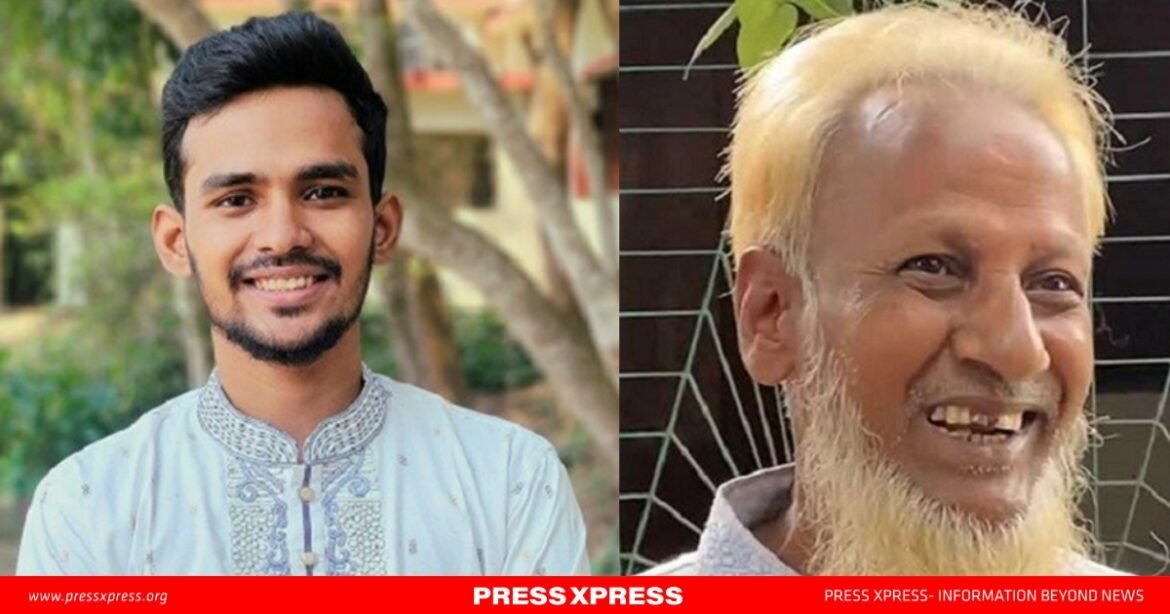The grainy black-and-white CCTV footage from a high-rise in Gulshan captures a quiet moment heavy with tension.
It is the morning of July 17. In the living room of a spacious flat, two young men sit across from Siddiq Abu Zafar, the husband of former lawmaker Shammi Ahmed. On the side table beside one of the visitors rests a neat stack of banknotes — Tk5 lakh in cash.
The man who placed it there seems hopeful it will buy peace. But the young man called Riyad shakes his head. He has come for much more — Tk1 crore — and, according to a confession now roiling Dhaka’s political circles, he claims to have come on orders from one of the most controversial men in the interim government: Adviser Asif Mahmud Shojib Bhuyain.
A Raid Before Dawn
The drama, according to the confession, began hours earlier, before sunrise. Jane Alam Apu, once the joint convener of the Bangladesh Democratic Students’ Union (BDSU) before his expulsion, says a crowd of 30 to 40 student activists arrived with police at the Gulshan apartment around 5 a.m., looking for Shammi Ahmed.
They did not find her. But Apu says her belongings — a phone, headphones, shoes, and a vanity bag — suggested she had been there. That morning, at around 4:10 a.m., he says he met Adviser Mahmud near the Westin hotel in Gulshan 2. Mahmud, masked and riding a CF Moto motorcycle, allegedly set the plan in motion.
The Demand Inside the Flat
By midmorning, Apu and Riyad were at Abu Zafar’s door. Inside, Riyad made the demand: Tk1 crore. The reason, he claimed, was that the students had saved the couple from arrest and public disgrace.
The CCTV footage shows the initial offer — Tk5 lakh in cash — being pushed aside. After tense bargaining, the demand was lowered to Tk50 lakh. A call was made, and a courier arrived with a black bag holding Tk10 lakh, which Apu says he placed in his backpack. Riyad told Abu Zafar they would return for the rest in two days.
Cash, Motorcycles, and Blackmail
The next day, Riyad took Apu to a Yamaha showroom in Mohakhali, handing him Tk3 lakh to buy a motorcycle. Apu used his own national ID for the purchase — a move he now calls a mistake, claiming Riyad later used it to threaten him.
When they returned to the Gulshan flat on July 19 to collect more money, they found no one home. On July 26, Riyad was arrested along with four other students; Apu says he narrowly avoided the same fate.
Allegations of Political Protection
In his 35-minute video, recorded while in hiding and now circulating widely online, Apu alleges that senior leaders of the National Citizen Party (NCP) — including Abdul Hannan Masud and NCP Convener Nahid Islam — shielded Riyad and other student enforcers.
These figures, Apu claims, capitalized on last year’s July–August protest movement to secure advisory posts in the interim government, turning the street mobilizations into lucrative political power.
A Public Apology, But No Arrests at the Top
“I am not an extortionist,” Apu says in the recording. He points to his inability to pay a Tk60,000 semester fee and the need to borrow from his wife for political travel as proof. He apologizes “to the people of Bangladesh” and pledges to face the legal process.
But while Riyad and lower-level associates have been detained, Adviser Mahmud — the man Apu says orchestrated the scheme — remains untouched, continuing to operate at the heart of the interim administration.
The case has stirred public anger and renewed questions about whether Bangladesh’s protest-born interim government has merely replaced one set of political patrons with another. For now, the grainy CCTV image of a cash-laden table in Gulshan remains a stark reminder of how power, politics, and impunity can intersect in the shadows of Dhaka’s elite.


